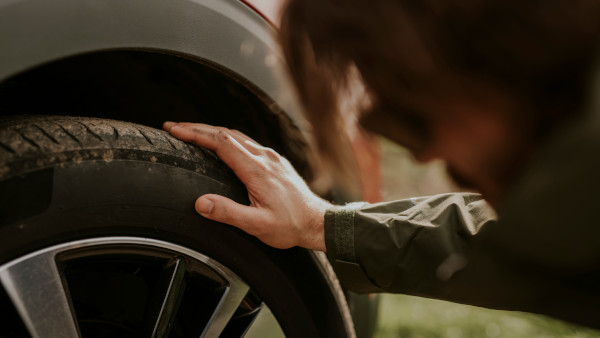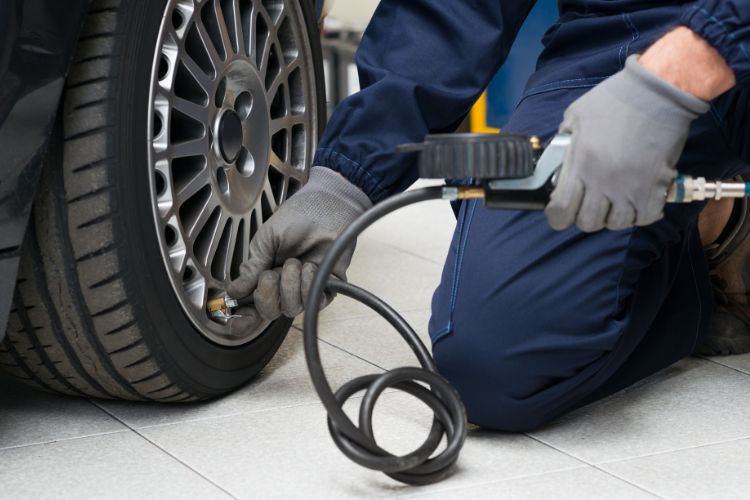Why is Tyre Safety Important?
Your tyres are the only part of your vehicle in constant contact with the road. Worn or damaged tyres can affect braking, fuel efficiency, and cause dangerous blowouts. In the UK, driving with tyres below the legal tread depth can result in fines up to £2,500 per tyre.

Checking Tyre Tread
Tread depth is one of the most critical aspects of tyre safety. Driving on worn tyres reduces your grip on the road, especially in wet conditions, increasing your risk of aquaplaning and longer stopping distances.
For cars and minibuses with a GVW (Gross Vehicle Weight) under 3.5 tonnes the legal minimum tread depth in the UK is 1.6mm, but for optimal performance, you should aim for a depth of at least 3mm.
For minibuses over GVW 3.5 tonnes the minimum tread depth is 1mm over a continuous band covering at least any three-quarters of the breadth of the tread (the part in contact with road) around the entire circumference.
The 20p Test
One easy way to check your tread depth is by using the 20p test. Simply take a 20p coin and insert it into the grooves of your tyre tread.
If the outer band of the coin is hidden when inserted, your tread is within the legal limits. If you can see the coin’s outer band, it’s time to replace your tyres.
Make sure you check the tread depth across the entire width. Uneven wear could be a sign of alignment or suspension issues, so keep an eye out for that too.
Tyre Pressure
Under- or over-inflated tyres affect handling and fuel consumption. Check pressure monthly using a reliable gauge, and adjust for temperature changes.
To check your tyre pressure, use a reliable pressure gauge. You can usually find the recommended pressure for your vehicle in the owner's manual or on a sticker inside the driver’s door.
Spotting Damage
Look for cuts, bulges, cracks, or punctures that could lead to blowouts. Inspect sidewalls for cracking, which indicates tyre weakness.
Tyre Sealant Kits
Sealant kits work by sealing small punctures and reinflating the tyre. Check the expiry date on your tyre sealant kit, as they only provide a temporary fix for small punctures.
Tyre Rotation and Balancing
Rotation is an essential part of tyre maintenance and helps to ensure even wear across all four tyres. Front tyres often wear out faster than rear ones due to the extra weight and stress they bear.
Rotate tyres every 6,000 miles for even wear and balance to prevent vibrations. If you notice your steering wheel shaking or your car pulling to one side, it might be time to get your tyres balanced or aligned.
Spare Tyre
While many newer cars no longer come with a spare tyre, if you’re driving an older model, this tip is still crucial. Always check your spare tyre for damage and proper pressure.
Professional Inspections
Tyre specialists can spot issues that might not be obvious to the untrained eye and can advise on whether it’s time for a replacement.
Proper tyre maintenance improves handling, reduces fuel costs, and helps you avoid unnecessary breakdowns or accidents. Save yourself money in the long-run and book yourself a tyre health check now.
From checking your tread depth to ensuring your tyre pressure is spot on, taking a few simple steps can drastically reduce your risk of accidents and improve your vehicle’s performance whether it’s your car or your minibus.
Book a free tyre safety check with our team today
Pop into our BOSCH servicing department at Rivervale House, get your tyres checked, and enjoy a coffee whilst you wait.

